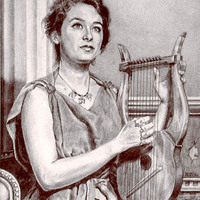in Esther Hamori and Jonathan Stökl, eds., Perchance to Dream: Essays on Dream Divination in Biblical and Other Ancient Near Eastern and Early Jewish Sources (Ancient Near Eastern Monographs Series, 21; Atlanta, GA: SBL Press), pp. 61-90., 2018
In this essay, I should like to bring together four topics that I contend are reciprocally illumi... more In this essay, I should like to bring together four topics that I contend are reciprocally illuminating for the study of dreams and dream divination in ancient Is-rael. The first is a relationship between gendered constructions of Israelite divin-ers and beliefs concerning fertility and the stigma of pollution. The second is an association of dreams with male virility. The third topic is a perceived connection between memory and masculinity. The fourth is the role of the heart as an organ for recording dreams. As I shall argue, the four topics are mutually defined by conceptions of maleness, which, in turn, inform our understanding of the Israelite dream experience, its import, and narratives concerning dreams. In particular, they combine to explain why only men dream and interpret dreams in the Hebrew Bible, unlike elsewhere in the ancient Near East, and how the heart and the phallus became competing loci for inscribing covenantal memory. I shall use the terms prophet, diviner, and mantic interchangeably.











Uploads
Papers by scott noegel
It expands upon a previously published study in this journal that examined a literary strategy which employs linguistic devices of doubling in biblical narratives that reference twins. It demonstrated that Israelite authors employed several devices, including dual forms, gemination, doubled vocabulary, polysemy, and paronomasia on the number ‘two’, in order to match form to content. Here we add studies of four biblical passages (Judges 5, Proverbs 20, 30, 31) as well as a brief excursus on a similar strategy in the Epic of Gilgamesh, and we argue that the strategy of doubling also appears in narratives that feature pairs or the doubling of amounts (i.e., not necessarily texts that employ the term ‘twin’).
This brief study details a number of hitherto unrecognized cases of paronomasia and one case of polysemy in the Tale of Sinuhe that allude to names that play prominent roles in the story. The devices constitute a sustained literary strategy that ties Sinuhe to the distant places to which he traveled during his self-imposed exile, even as they provide additional evidence for the story’s literary craft and the author’s knowledge of Syro-Canaanite idioms and culture.
It expands upon a previously published study in this journal that examined a literary strategy which employs linguistic devices of doubling in biblical narratives that reference twins. It demonstrated that Israelite authors employed several devices, including dual forms, gemination, doubled vocabulary, polysemy, and paronomasia on the number ‘two’, in order to match form to content. Here we add studies of four biblical passages (Judges 5, Proverbs 20, 30, 31) as well as a brief excursus on a similar strategy in the Epic of Gilgamesh, and we argue that the strategy of doubling also appears in narratives that feature pairs or the doubling of amounts (i.e., not necessarily texts that employ the term ‘twin’).
This brief study details a number of hitherto unrecognized cases of paronomasia and one case of polysemy in the Tale of Sinuhe that allude to names that play prominent roles in the story. The devices constitute a sustained literary strategy that ties Sinuhe to the distant places to which he traveled during his self-imposed exile, even as they provide additional evidence for the story’s literary craft and the author’s knowledge of Syro-Canaanite idioms and culture.
This monograph offers a comparative study of the various functions that wordplay serves in ancient Near Eastern texts and provides a comprehensive taxonomy for the phenomenon. Languages covered include Sumerian, Akkadian, Egyptian, Ugaritic, biblical Hebrew, and Aramaic. The monograph also examines definitions of "wordplay" by exploring ancient conceptions of words and the generative role of scripts (consonantal, syllabic, and pictographic). Also discussed are issues of terminology, genre, audience, grammaticality, interpretation, and methodology. The book further considers the distribution and preferences of these devices among the languages and discusses a number of principles and strategies that inform their creation, such as ambiguity, repetition and variation, delayed comprehension, metaphor and metonymy, clustering, and the use of rare words. The book concludes by suggesting potential avenues for future research.
https://global.oup.com/academic/product/ancient-divination-and-experience-9780198844549?cc=gb&lang=en&#
This volume sets out to re-examine what ancient people - primarily those in ancient Greek and Roman communities, but also Mesopotamian and Chinese cultures - thought they were doing through divination, and what this can tell us about the religions and cultures in which divination was practised. The chapters, authored by a range of established experts and upcoming early-career scholars, engage with four shared questions: What kinds of gods do ancient forms of divination presuppose? What beliefs, anxieties, and hopes did divination seek to address? What were the limits of human 'control' of divination? What kinds of human-divine relationships did divination create/sustain? The volume as a whole seeks to move beyond functionalist approaches to divination in order to identify and elucidate previously understudied aspects of ancient divinatory experience and practice. Special attention is paid to the experiences of non-elites, the perception of divine presence, the ways in which divinatory techniques could surprise their users by yielding unexpected or unwanted results, the difficulties of interpretation with which divinatory experts were thought to contend, and the possibility that divination could not just ease, but also exacerbate, anxiety in practitioners and consultants.
Further information at: https://global.oup.com/academic/product/ancient-divination-and-experience-9780198844549?cc=gb&lang=en&#